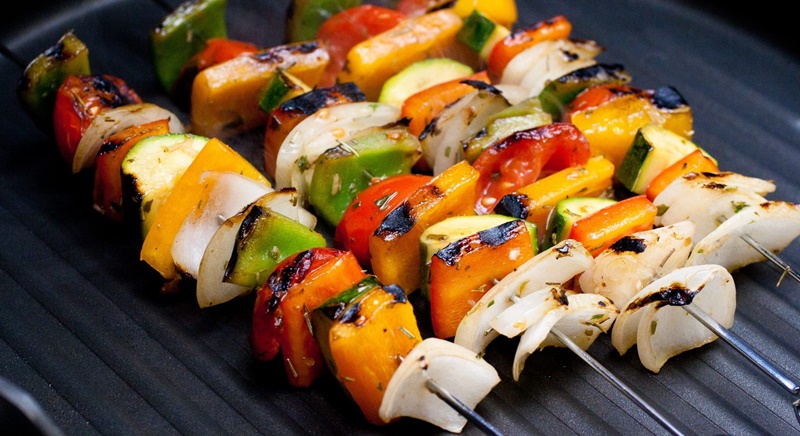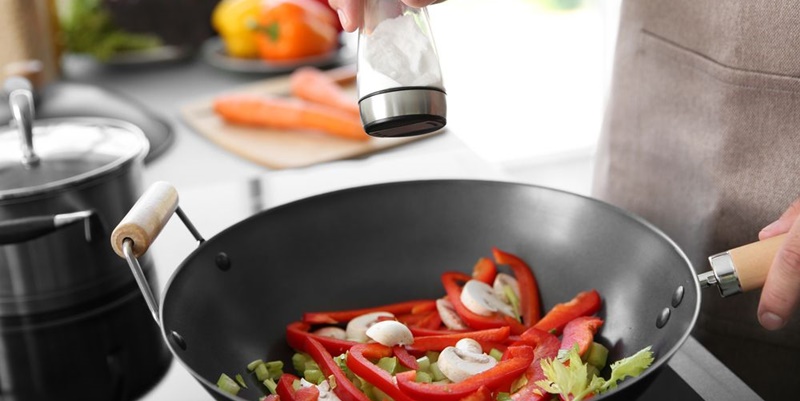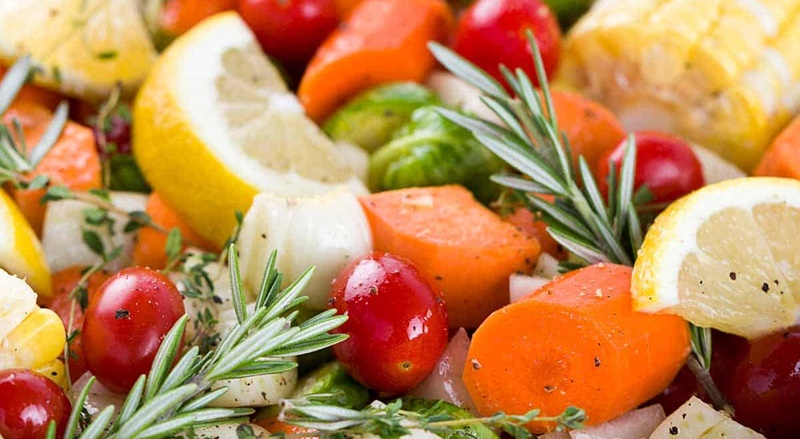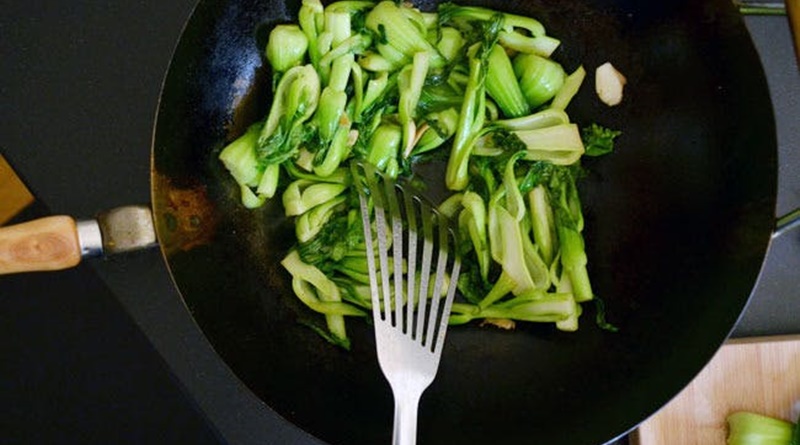Chargrill for that Smoky Flavor
– It may sound unusual, but grilling is a simple cooking method that can enhance the natural flavors of vegetables and satisfy the palate.
– Especially, a slight char on the veggies will stimulate your taste buds with that smoky aroma.
– However, avoid over-burning and for health reasons, discard any severely burnt parts before consumption.

Be Generous with Salt
– Most vegetables require a good amount of salt during cooking, so season generously before or during the cooking process, but not too much to avoid over-salting.
– Prior to cooking, marinate the veggies with salt for about 15 minutes. Salt will help remove bitterness and intensify the flavors.

Use Vinegar and Lemon
– Many people dislike vegetables for various reasons, one of the most common being the presence of sweetness in savory dishes, or the “overpowering” taste for children.
– To create a unique flavor profile and make veggies more enjoyable, add a splash of vinegar or lemon juice during or after cooking. The sourness will make it easier for both you and your kids to develop a taste for veggies.

Stir-fry Green Veggies Over High Heat
– Green vegetables taste better when stir-fried over high heat, so get a large wok, turn up the heat, and toss in your favorite greens.
– The high heat will quickly cook the veggies, giving them an appealing vibrant green color, and with the right seasoning, they’ll be ready to eat in no time. This visually appealing dish might just convince veggie haters to give it a try!

If you’re trying to convince someone to eat more veggies, give these tips a try! Feel free to share your own delicious vegetable cooking tips in the comments below.
Source: thekitchn.com
– Experiment with different cooking methods: Try roasting, grilling, or stir-frying vegetables to enhance their natural flavors and create a variety of textures.
– Use herbs and spices: Add flavor and excitement to vegetables with herbs like basil or parsley, and spices such as cumin or paprika.
– Combine vegetables with favorite foods: Mix vegetables with cheeses, nuts, or grains to make them more enjoyable.
– Puree vegetables: For an easy way to include veggies in meals, puree them and add them to sauces, soups, or even baked goods.
– Use healthy fats: Adding a small amount of extra virgin olive oil, avocado oil, or nut butter can make vegetables more flavorful and help your body absorb the nutrients better.
– Opt for natural sweeteners: If you crave sweetness, try using natural options like dates, maple syrup, or stevia instead of refined sugar.
– Boost flavor with citrus: Lemon or lime juice can brighten up the taste of vegetables without adding any unhealthy ingredients.
– Spiralize zucchini, carrots, or sweet potatoes to use as a pasta substitute.
– Make cauliflower rice by pulsing cauliflower florets in a food processor, then sautéing it with your favorite spices.
– Hide vegetables in smoothies by blending them with fruits and healthy liquids. For example, try blending spinach with bananas, berries, and almond milk for a nutritious and tasty smoothie.
– Bake vegetables into chips! Thinly slice vegetables like beets, sweet potatoes, or kale, coat them with a small amount of oil and your favorite seasonings, then bake until crispy.
– Plan your meals: Decide on a few vegetable-centric meals that you’d like to make for the week, and create a shopping list accordingly.
– Batch cook and freeze: Prepare larger batches of vegetable-based dishes and freeze individual portions for quick and convenient meals during the week.
– Opt for pre-cut vegetables: Save time by buying pre-cut or spiralized vegetables, which are readily available in most supermarkets.
– Invest in a good vegetable chopper or food processor: This will significantly reduce the time spent on chopping and slicing.
Why Does Packaged Salt Have an Expiry Date?
Salt is a staple mineral, and when kept dry, it remains impervious to degradation over time. So, why do packaged salt products still bear an expiration date? This is a curious conundrum that warrants some elucidation. The answer lies in the journey salt undertakes from its pristine mineral form to the refined, packaged product on our shelves.
Unusual Cooking Tips: The Magic of Salt
 Salt‘>
Salt‘>Salt has a surprising array of uses in the kitchen beyond simply seasoning food. It can be a cook’s best friend, from preventing oil splatters when frying to keeping fruits and vegetables fresh and unblemished. It’s also a handy tool for dealing with greasy, burnt dishes and neutralizing onion odors.






































